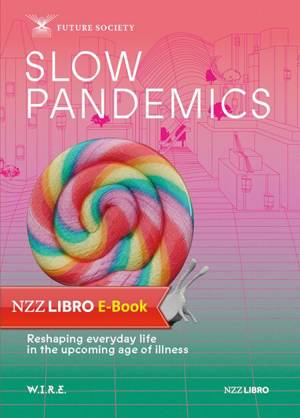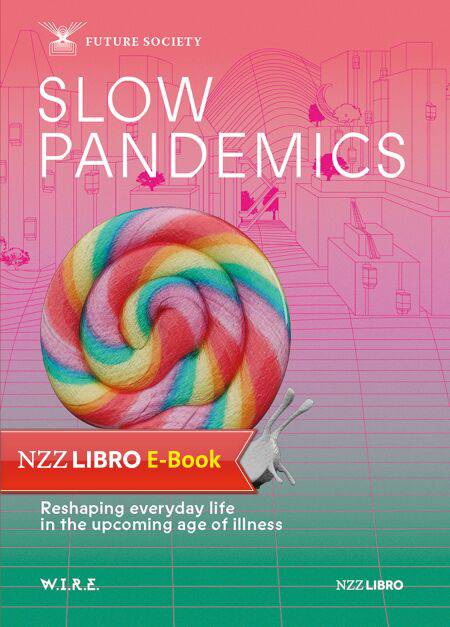
- Afhalen na 1 uur in een winkel met voorraad
- Gratis thuislevering in België vanaf € 30
- Ruim aanbod met 7 miljoen producten
- Afhalen na 1 uur in een winkel met voorraad
- Gratis thuislevering in België vanaf € 30
- Ruim aanbod met 7 miljoen producten
Zoeken
Slow Pandemics E-BOOK
Reshaping everyday life in the upcoming age of illness
Stephan Sigrist
E-book | Engels
€ 24,00
+ 24 punten
Uitvoering
Omschrijving
Medical progress and greater prosperity have helped us to not only live longer, but also to stay healthy longer. However, the downsides of ever greater convenience are now becoming apparent: the next pandemic will be characterised by lifestyle-related diseases and – unlike the coronavirus – will spread slowly and without much media attention. A growing number of circulatory diseases, type 2 diabetes and cancer are part of the new normal, resulting from a modern lifestyle with less exercise and more fast food. An increasing number of mental illnesses due to pressure to perform, loneliness and dependence on digital aids have become part of our daily life. Not only older people are affected but more and more young people also suffer from these symptoms.
These "slow pandemics" arise in everyday life and cannot be treated by a hospital stay or a drug. They require a new healthcare system that focuses on daily life – and the involvement of all public and private actors who shape our environment and behaviour. The focus on healthy lifestyles opens up new, interlinked markets for prevention – provided that society also assumes responsibility. The foundations are selective rather than a complete evaluation of behavioural data, and builds health-promoting infrastructure and redefines quality of life by combining control and enjoyment.
These "slow pandemics" arise in everyday life and cannot be treated by a hospital stay or a drug. They require a new healthcare system that focuses on daily life – and the involvement of all public and private actors who shape our environment and behaviour. The focus on healthy lifestyles opens up new, interlinked markets for prevention – provided that society also assumes responsibility. The foundations are selective rather than a complete evaluation of behavioural data, and builds health-promoting infrastructure and redefines quality of life by combining control and enjoyment.
Specificaties
Betrokkenen
- Auteur(s):
- Uitgeverij:
Inhoud
- Aantal bladzijden:
- 140
- Taal:
- Engels
Eigenschappen
- Productcode (EAN):
- 9783907396360
- Verschijningsdatum:
- 11/12/2022
- Uitvoering:
- E-book
- Beveiligd met:
- Digital watermarking
- Formaat:
- ePub 3 Fixed Layout

Alleen bij Standaard Boekhandel
+ 24 punten op je klantenkaart van Standaard Boekhandel
Beoordelingen
We publiceren alleen reviews die voldoen aan de voorwaarden voor reviews. Bekijk onze voorwaarden voor reviews.











